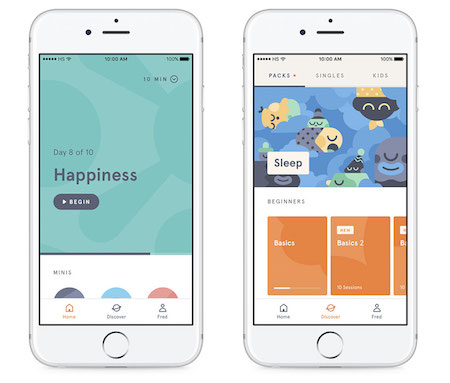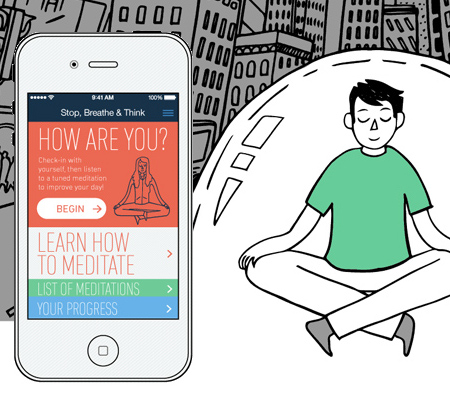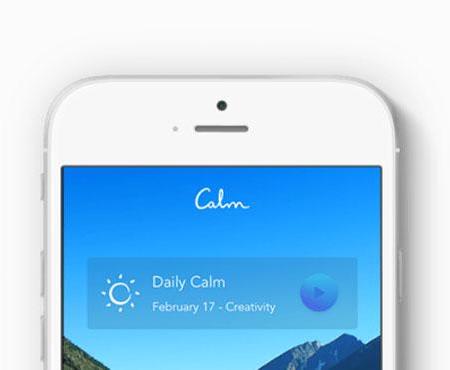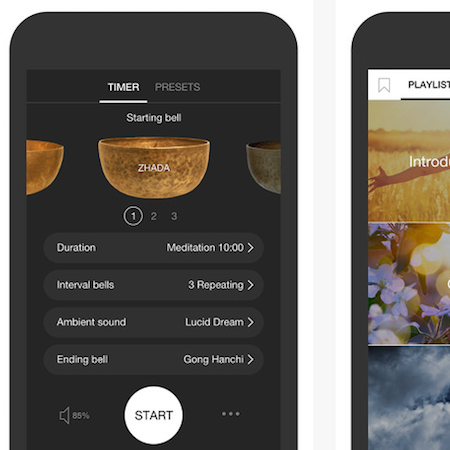Buying Guide - How to Choose a Meditation App
Choosing the right meditation app for your needs can add a new element of positivity in your day-to-day life.
This guide will go over what meditation really means, how it can help you sleep, and all the different elements you should look for in a meditation app.
What is Meditation?
We’ve all heard of meditation before, but what does it really entail? According to Encyclopedia Britannica, meditation is a private exercise encompassing concentration, abstraction, or contemplation. It’s also conducive to heightened calm and spiritual awareness.
That may include breathing, gazing, visualizing, and sounds. For that reason, meditation can be interpreted to cover many different practices, including yoga.
The practice likely dates back over 5,000 years, with the Vedas in India first documenting meditation around 500 BCE. Although western countries had some exposure to this practice, it more recently exploded into popularity in the past few decades in the United States. It’s hard to pinpoint the sole reason, but several events contributed to its recent uptick in popularity.
For example, take molecular biologist Jon Kabat-Zinn. He pulled off a wildly successful meditation program for western medicine practices in the 1970s. His initiative helped integrate some of the more holistic medicine ideas into western medicine with a Mindfulness-Based Stress Reduction (MBSR) program for people who suffered from chronic pain.
Over the years, combined with American lifestyles that didn’t provide much time for rest or reflection, many people felt hungry for a more calming effect in their day-to-day lives.
Ironically, the technology and distractions that have made it so hard to be present have actually become a tool to counteract that problem. It’s no surprise that many different meditation apps have popped up with great success.
How Can Meditation Help Me Sleep?
Meditation and sleep go together like deep breathing and yoga. But that’s not just a hunch — plenty of studies show how effective these bedfellows really are.
For example, a synthesis of academic studies conducted between 2012-2016 showed that Mindfulness-Based Interventions (MBIs) significantly impacted sleep disturbance and insomnia. In fact, cognitive behavioral therapy for insomnia delivered online has been shown to be just as effective in person — meaning there’s no reason meditation apps couldn’t help you sleep.
And even old dogs can learn new tricks. A study conducted at UCLA in 2012 found that older adults can improve moderate sleep disturbances through an introduction to mindfulness meditation.
A study conducted by Frontiers in Neurology also found that meditation helps with sleep initiation through several different methods. Meditation regulates blood flow to executive regions of the brain, reduces stress levels, and can even help grow and repair cells.
Translation? Meditation can actually alter your physiology to provide similar effects of sleep. Another Harvard study found that middle-aged adults who completed a mindfulness awareness program helped evoke the relaxation response. This response is the opposite of a stress response, and can help alleviate problems such as sleep disorders, high blood pressure, and depression.
Long story short, numerous studies have shown the same truth time and again: mindfulness and meditation provide a direct line to healthy sleeping habits. And it makes sense. If your body is producing the same kinds of chemicals during meditation as during sleep, the two inevitably make a great pair. Just one more reason to meditate before bed.
What Should I Look for in a Meditation App?
You understand how beneficial meditation can be, but how do you choose the right app for you? Meditation apps often cater to specific audiences, so some will work better depending on your goals and life circumstance. Here are a few components to take into consideration.
Level of Guidance
Just as some people like to run alone while others want a group exercise class, the level of guidance you prefer is highly subjective. Ask yourself how much help you want from a meditation app. Thinking about how you like to exercise may provide some good clues.
Are you self-motivated and more interested in working alone, or do you pay better attention when someone keeps you on track? Maybe you’re somewhere in between, and would like to be walked through new sessions, at least for a little while.
Different apps provide varying degrees of structure and teachers. For example, apps like Calm will guide you through deep sleep exercises with well-known narrators, whereas Headspace will guide you through more bite-sized meditation throughout the day.
Customizability
The beauty of meditation is that you can practice it in many different ways. For that reason, you’ll want to figure out how much customization you want with your app. Here are a few settings to consider:
Duration
How long are you looking to meditate for each session? Some apps specialize in short-term meditation that you can squeeze into anytime of day, while others are a bit more of a commitment. A highly customizable app will allow you to choose between a wide range of session durations.
Music/Sounds
What kinds of sounds soothe you? Do you prefer to listen to nature, or are you more interested in music? Or, do you want something totally different, like feeling as if you’re in a temple? Meditation apps like Insight Timer provide a range of soothing bells that you can pick and choose to designate spots in your mindfulness practice.
Guidance
This comes back to the level of guidance you prefer, but at a more granular level. Can you decide whether or not someone talks you through your meditation? Some apps offer dozens of different teachers, while others offer thousands. If you have a favorite voice or person you like to follow, being able to find that guide on an app is a customization feature to consider.
Breathing exercises, stretching, etc.
You should always choose the style of mindfulness that fits you best. Maybe you’re not good at sitting still, or prefer a more body-integrated meditation. Check if the app you have offers different kinds of breathing or stretching exercises. Apps like Calm specialize in meditation/body combo classes, so you can get the best of both worlds.
Accountability
Are you someone who can stick by your own goals and benchmarks, or do you respond better towards outward accountability? Check if the meditation app you want has the option to send a reminder, or if you can turn reminders off when you don’t need them.
Some other points to consider: can you set a schedule to meditate at the same time every day? Do public points systems help you stay on track? Apps like Insight Timer provide public profiles with milestones if you prefer more accountability.
Audio and Visual
Remember figuring out whether you were an audio, visual, or tactile learner? Think about whether you care more about audio or visual cues, especially during a guided meditation.
Many meditation apps are audio-based and ideal for listening to with your eyes closed or while you’re seated somewhere like public transit. Others are video-based and better for at-home practice where you have a more private place to view and follow along. Which would keep you more hooked and interested in continuing?
Price
How much are you willing to invest in a meditation app? While some apps are free, others are only free up to a point. Many meditation apps offer a monthly, yearly, or lifelong subscription. For paying apps, the cheapest average around $5 a month and can go all the way up to $300 for a one-time, lifelong payment.
Check out different price points to decide what will work best for your budget. And if you’re wondering whether or not the price is worth it, check out the store reviews to see if people found it to be a good value. Still can’t decide? Not to worry — most apps also allow you to take advantage of a free trial period that lasts around seven days.




